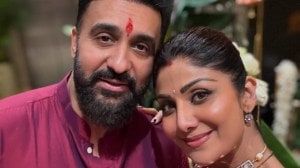Saved by the Bell
...

Seated inside an airy glass cabin in Delhi University8217;s commerce department, Sanjeev Talwar, a counsellor with the National Consumer Helpline NCH, receives almost 60 such calls a day. Since Union Minister Sharad Pawar launched the Helpline toll-free 1600-114000 on World Consumer Rights Day in mid-March, this government-aided redressal system, run by NGO Consumer Voice, has been flooded with complaints. Most are about inflated electricity and cellphone bills, threats from goons hired by credit card companies and defective products. Last month, the tally was 5,500 calls. Through their database of 25,000 numbers8212;of consumer courts, zonal banks, insurance and telecom offices8212;the counsellors know exactly where and how each complaint should be lodged.
Talwar is unfazed till the New Delhi-based HL Goyal comes online. Goyal8217;s son died some years ago in a swimming accident. A case Goyal filed against the owners of the sports club has been languishing in the State Consumer Disputes Redressal Commission in Uttar Pradesh for three years. Now Goyal needs legal advice to fast track the issue. 8216;8216;Sir, let me put you in touch with our legal expert,8217;8217; offers Talwar.
It8217;s a classic peek into our consumer courts. The three-tier redressal mechanism was set up after the 1986 Consumer Protection Act, to swiftly settle cases outside the languorous judicial system. Since its inception, 24 lakh consumer cases have been filed. But the tidal wave of cases are rarely resolved within the stipulated 90 to 150 days see box.
Justice MB Shah, president of the National Consumer Disputes Redressal Commission, blames the delays on the late appointment of judges and bad infrastructure. 8220;The state governments are not interested. They delay in appointing members and presidents,8221; he reasons.
But as the solution to the cumbersome judiciary goes the way of its predecessor, consumer organisations are filling the gap. These NGOs offer swift solutions to consumers who don8217;t want to go through the complex vines of the consumer courts.
Take the case of Chennai-based Charan Kamal Saini. In August this year, Saini purchased a cake online; it was to be delivered to her 61-year-old father-in-law in Hoshiarpur, Punjab. When the portal cancelled the delivery and failed to return her money even after two months, she decided to turn to a consumer redressal forum for help. After some research, she sent an e-mail to Consumer Voice, which in turn filed a complaint with the company on her behalf. Within a month, the money was returned.
Similarly, two years ago, Mumbai-based businessman Rustom Doctor bought a golden Opel Astra, which reeked of petrol fumes. 8220;Despite all our complaints, they would not replace the parts of the car. Finally, I had to approach an NGO in Delhi to get it sorted out.8221;
Manubhai Shah, founder of Ahmedabad-based NGO Consumer Education and Research Centre CERC, who in 1978 fought the first consumer case against the Gujarat Bus Transport8217;s fare hike, says, 8220;Today more people want to assert their rights than suffer in silence.8221;
|
2,19,759 |
CERC handles 10,000 cases every year, of which nearly 80 per cent are resolved out of court. A few years ago, a stock broker sold some shares in Tata Power for HR Patankar, former chief secretary of Gujarat. But when the broker refused to pay Patankar the sale proceeds, CERC8217;s Shah summoned both parties to his office to sort out the matter. 8220;I told the broker that I would file a complaint with Sebi and his membership card would be withdrawn if he failed to pay up,8221; says Shah.
According to Chennai-based consumer activist R Desikan, the failure of consumer courts and the imposition of a registration fee has prevented people from approaching them with minor complaints. 8220;No one would want to go to court and pay Rs 100 for a defective pen he bought for
Rs 75,8221; he says. As founder of the four-year-old Consumers Association of India, Desikan receives an average of five complaints a day and has fought about 200 cases in court. 8220;But nearly 80 per cent of our cases have been out-of-court settlements,8221; he adds.
There are between 3,000 to 8,000 consumer organisations across the country, of which 1,350 are recognised by the government. The pace of this redressal system is expected to increase once the government, which has already launched the Jago Grahak Jago media campaign, executes its plans for 60,000 consumer clubs across the country by 2006.
The helplines and NGOs also obviously work for less acrimonious cases. When a Noida-based woman received threatening calls even after her credit card bill was settled, she turned to the NCH to guide her to the right person in the offending company. The matter is now behind her, but the lady did not want the name of the credit card company to be printed for fear of reprisal.
According to Nutan Logani, banking and insurance advisor at the NCH, complaints against credit card companies are ballooning at an alarming proportion because credit card agencies don8217;t have nodal redressal officers. About 19 per cent of the calls the helpline gets are related to defective products, followed by telecom 14 per cent, banking and insurance 8 per cent.
Back at the NCH, the latest gripes involve the false promises of a beauty clinic, an errant cable operator and a deceitful travel company.
- 01
- 02
- 03
- 04
- 05































